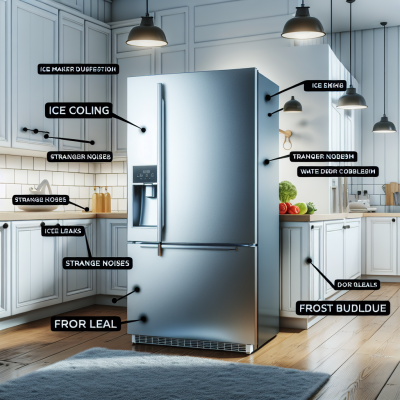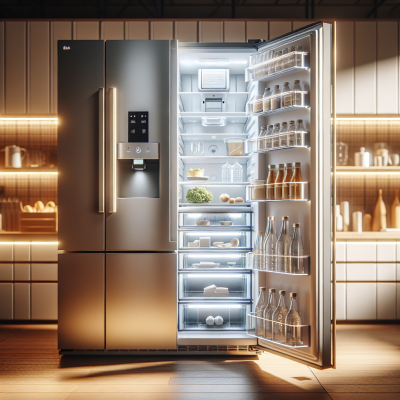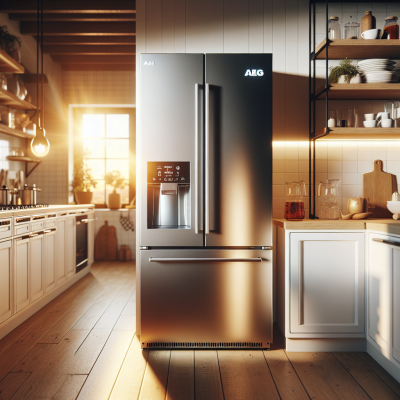Fast & Reliable Delfield Refrigerator Repairs - Call Now! |
Error Codes
Understanding Error Codes
Types of Error Codes
Error codes are alphanumeric sequences displayed on your Delfield refrigerator's control panel. They help identify issues within the system by pinpointing specific areas of concern. These codes typically fall into the following categories:
- Cooling System Errors: Indicate problems related to temperature regulation, such as issues with the compressor or fans.
- Electrical System Errors: Concern faults in the wiring, power supply, or electronic components.
- Sensor and Control Errors: Relate to failures or malfunctions in sensors and control circuits that manage the refrigerator's operation.
General Error Code Reference
Understanding the meaning of each error code is essential for effective troubleshooting. Here is a general guide to interpreting error codes:
| Error Code | Meaning | Possible Cause |
|---|---|---|
| E1 | High Temperature Alert | Blocked vents, faulty compressor |
| E2 | Low Temperature Alert | Malfunctioning thermostat |
| E3 | Sensor Fault | Damaged or disconnected sensor |
| E4 | Power Supply Issue | Power surge or supply failure |
| E5 | Control Circuit Error | Circuit board malfunctions |
Common Error Codes
Cooling System Errors
Cooling system errors are critical as they directly affect your refrigerator's ability to maintain the appropriate temperature. Some common cooling system error codes include:
-
E1 - High Temperature Alert: This indicates that the internal temperature is higher than the preset limit, possibly due to a blocked air vent or a malfunctioning compressor.
-
E6 - Evaporator Fan Error: Suggests that the fan responsible for circulating air is not working correctly, potentially due to a motor failure.
Electrical System Errors
Electrical errors can indicate issues with the power delivery to the refrigerator. For example:
- E4 - Power Supply Issue: Often appears if there's been a power surge or if the refrigerator is not receiving adequate power. Check for a tripped circuit breaker or a blown fuse.
Sensor and Control Errors
These errors typically stem from problems with internal sensors or control modules:
-
E3 - Sensor Fault: Highlights a failure in one of the temperature sensors, which could be due to a disconnect or a physical break.
-
E5 - Control Circuit Error: Represents issues in the control board or its connections, requiring a thorough inspection.
Troubleshooting Error Codes
Diagnosing Specific Issues
Effective diagnosis begins with understanding the error code displayed. Check the accompanying manual or the table provided above to identify the potential root cause. Here's a methodical approach:
-
Confirm the Error Code: Recheck the code by restarting the refrigerator to ensure it is consistent.
-
Isolate the Problem: Conduct a visual inspection to check for obvious issues like ice build-up or wire disconnections.
-
Consult the Manual: Refer to your manual's troubleshooting section, which often includes specific guidance for each code.
Step-by-Step Reset Procedures
Resetting your refrigerator may resolve minor issues. Follow these steps for a systematic reset:
-
Turn Off the Power: Unplug the refrigerator from the electrical outlet.
-
Wait for a Few Minutes: Allow for any mechanical operations to halt completely, and the system to reset.
-
Replug and Restart: Connect the power and switch on the refrigerator, monitoring if the error code reappears.
Preventive Measures
Routine Maintenance Tips
Prevention is key to minimizing error codes and maintaining efficiency. Here are some routine maintenance tips:
-
Regularly Clean Coils: Ensure condenser coils are clean and free of dust buildup to improve efficiency.
-
Check Seals and Gaskets: Maintain door seals to keep the cool air inside and prevent temperature fluctuations.
Avoiding Common Errors
By taking certain preventive measures, common errors can be reduced significantly:
-
Maintain Clearance: Ensure adequate spacing around the refrigerator for ventilation to prevent overheating.
-
Avoid Overloading: Do not excess load your refrigerator, as this can strain the cooling system.
Incorporating these practices will help maintain optimal performance and extend the life of your Delfield refrigerator, making error codes less frequent and easier to manage when they occur.




